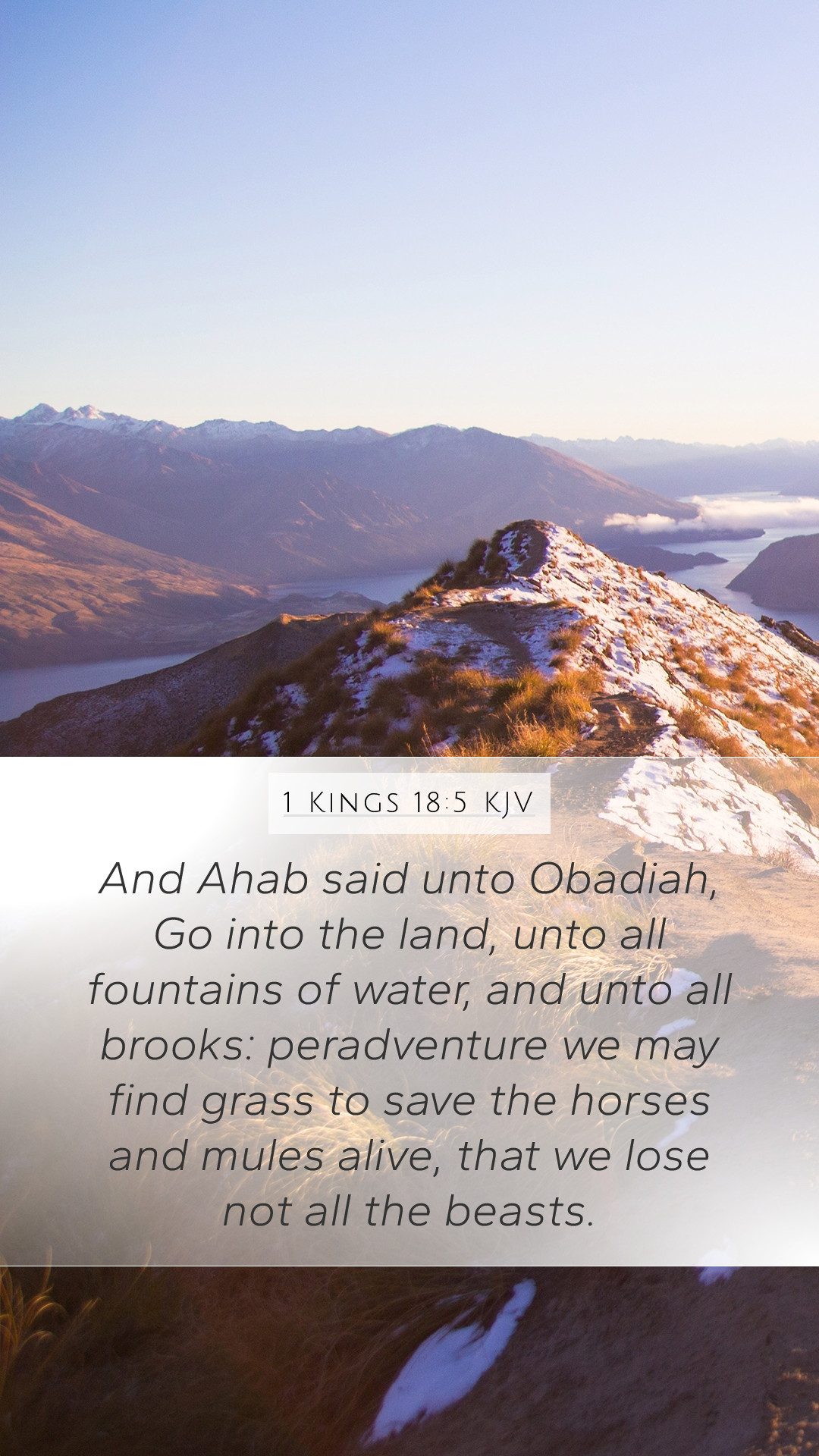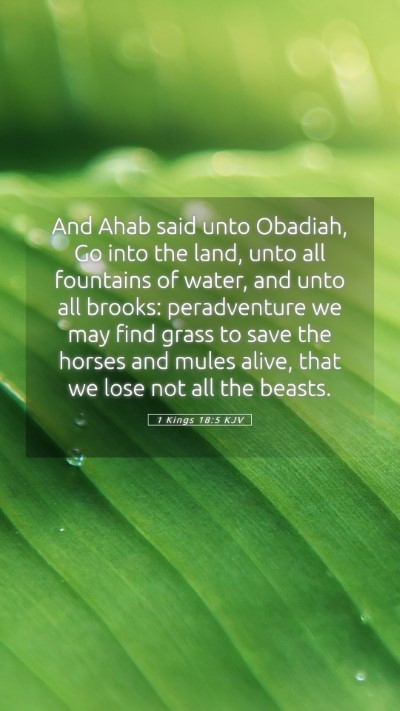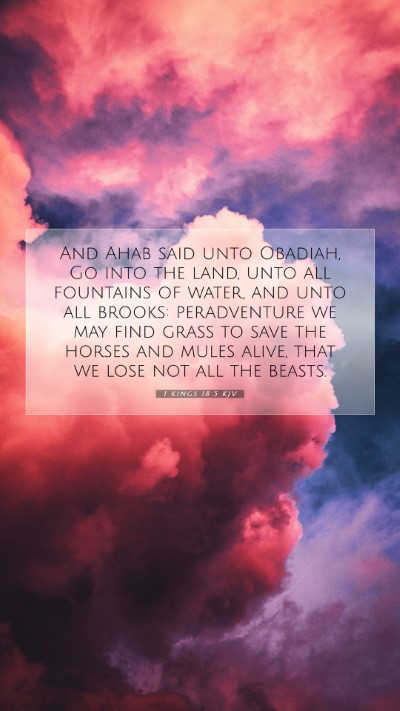Bible Verse Meaning and Commentary: 1 Kings 18:5
Verse: "And Ahab said unto Obadiah, Go into the land, unto all fountains of water, and unto all brooks: peradventure we may find grass to save the horses and mules alive, that we lose not all the beasts." (1 Kings 18:5)
Introduction
This passage occurs during a significant moment in Israel's history when Ahab the King faces severe drought, leading to a desperate search for sustenance not only for his people but also for the animals. This verse is charged with themes of leadership, desperation, and resourcefulness, reflecting the broader spiritual struggles occurring in Israel.
Summary of 1 Kings 18:5
In this verse, King Ahab instructs Obadiah to search the land for water sources that could provide grass, aiming to preserve their livestock amidst a prolonged drought. This task reflects Ahab's concern for his resources and emphasizes a moment of survival over spiritual integrity.
Commentary Insights
- Matthew Henry: Henry emphasizes the paramount stress that the drought has imposed on the king's priorities, noting the shift from royal responsibilities to survival instincts. Ahab's actions illustrate a reliance on worldly means rather than turning towards a higher power for guidance.
- Albert Barnes: Barnes points out the strategic nature of Ahab's search. King Ahab's dispatching of Obadiah carries a double significance— it is both a practical effort to save their financial and agricultural resources, while also highlighting the moral decline of leadership in Israel. A deeper search for both physical and spiritual nourishment is warranted.
- Adam Clarke: Clarke posits that this quest for water serves a dual role: it is a heartfelt need that reveals Ahab's priorities. By emphasizing the need to preserve the animals, it highlights the disconnect from his spiritual mission and reliance on God, hinting at the neglected covenant between Israel and Yahweh.
Theological Implications
This verse poses important theological questions about reliance and responsibility. In times of crisis, leaders are often faced with tough choices that test their faith and priorities. The search for water symbolizes the broader thirst for sustenance—not only physical but also spiritual. Ahab's focus on animals reflects a material concern overriding divine reliance.
The Importance of Context
Understanding this scripture necessitates an awareness of the historical and spiritual context. The drought signified not only a natural disaster but also a spiritual crisis tied to Israel's turning away from God, as portrayed through the earlier chapters of Kings. Ahab's concern here reflects a nation in fear, struggling to uphold its identity amidst divine judgment.
Application to Daily Life
1 Kings 18:5 can serve as a reminder of the importance of balance between worldly concerns and spiritual priorities. In modern contexts, people often strive for survival—whether in careers, relationships, or personal goals—yet may neglect the divine aspect of their existence. This verse encourages individuals to maintain a pursuit for spiritual values even amidst demanding times.
Cross References
- 1 Kings 17:1-7: This passage introduces the drought and Elijah's prophetic role, establishing the severity of the situation.
- James 5:17: References Elijah’s prayer causing the drought, connecting the physical lack to spiritual obedience.
- Psalm 42:1-2: Illustrates the deep thirst for God akin to a physical longing for water, enhancing the spiritual application.
Conclusion
In summary, 1 Kings 18:5 presents a compelling narrative where Ahab’s search for resources highlights important themes of leadership and spiritual integrity—constructs that remain relevant in contemporary biblical study. This scripture not only emphasizes the book's narrative trajectory but also invites readers to reflect on their own priorities in relation to faith and survival. Embracing the understanding of this verse can lead to profound insights during Bible study groups, and enhance individual engagements with Scripture.


